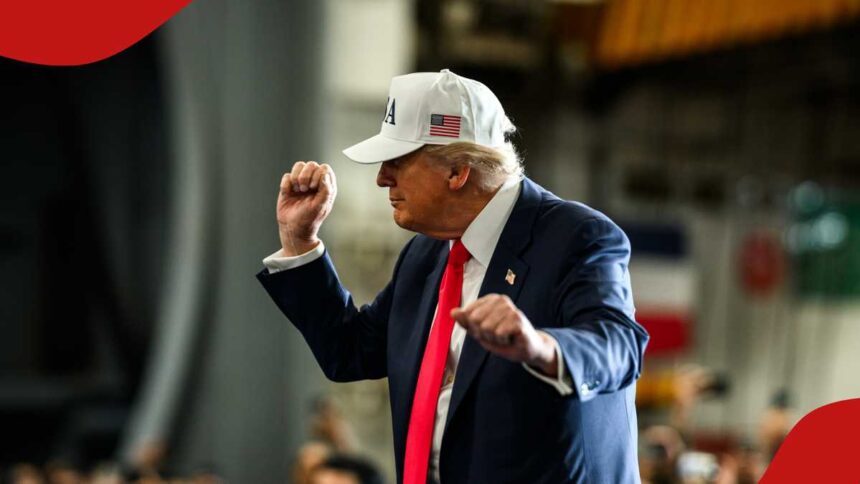- The United States (US) president Donald Trump’s administration introduced a new rule ending automatic work extension for foreigners
- According to the Department of Homeland Security, the new policy became effective on Thursday, October 30, 2025
- William Kimani, a Kenyan living and working in the US, told TUKO.co.ke that a few Kenyans will be affected, but Indians will be the most hit
TUKO.co.ke journalist Japhet Ruto has over eight years of experience in financial, business, and technology reporting, offering insights into Kenyan and global economic trends.
The United States (US) president Donald Trump’s administration has introduced a new rule that will stop many immigrants’ current work permits from being extended automatically.

Source: Twitter
According to an interim final rule released by the Department of Homeland Security (DHS), the practice of automatically extending employment authorisation documents (EADs) for foreign nationals submitting renewal applications in specific employment authorisation categories has been discontinued.
Why did Trump’s administration introduce a new work permit rule?
By implementing this regulation, DHS gives immigrants appropriate screening and vetting priority over prolonging the duration of their employment authorisations.
The US Citizenship and Immigration Services (USCIS) said the automatic extension of EAD will no longer be granted to those who apply to renew it on or after Thursday, October 30, 2025.
This rule has a few exceptions, such as extensions granted by law or through a notification published in the Federal Register for employment documents under TPS.
When automatic EAD extensions are discontinued, foreign nationals seeking permission to work in the US are subject to more frequent screening.
“USCIS is reaffirming its commitment to thorough alien screening and vetting, doing away with previous administration policies that placed the convenience of foreigners ahead of the safety and security of Americans.
It is a common-sense measure to ensure appropriate vetting and screening have been completed before an alien’s employment authorisation or documentation is extended. All aliens must remember that working in the US is a privilege, not a right,” USCIS director Joseph Edlow reiterated.

Source: Facebook
What are the implications for Kenyans and other foreigners?
USCIS advised foreigners to apply for timely renewal of their EAD by submitting a renewal application up to 180 days before the EAD’s expiration.
An alien’s employment authorisation or documentation is more likely to temporarily lapse the longer they wait to submit an EAD renewal application.
Geopolitical economist Aly-Khan Satchu opined that the move by Trump’s administration confirms a more aggressive approach to work permit expiries.
He warned that the rule means the US seeks to downsize the number of foreigners in the country.
“This evidently confirms that the US is looking to downsize the number of foreign nationals operating under this regime. I suspect there will be further onerous restrictions, for example, a specificity around jobs where the US believes there are sufficient US nationals and in those instances, I expect automatic expiry,” Satchu told TUKO.co.ke in an exclusive interview.
He explained that the policy will negatively affect remittances coming from North America, thus hurting Kenya’s forex reserves.
“This pressures North American-sourced remittances to the downside,” he added.
William Kimani, a Kenyan living and working in the US, told TUKO.co.ke that a few Kenyans will be affected, but Indians will be the most hit.
“The biggest casualties are Indians. They are the biggest beneficiaries of the H-1B visa. A few Kenyans will be affected. Most Kenyans are either here illegally (in the US) or have a green card,” Kimani stated.
Which African country did Trump remove from visa bond list?
In other news, the Trump administration removed Mali from its visa bond list after its retaliation.
US consulate officials require eligible visa applicants to post a refundable bond under the visa-bond programme to ensure their prompt return home following their visit.
In its updated list, the US retained Tanzania, Malawi, Zambia, Gambia, and Sao Tome & Principe.
Proofreading by Jackson Otukho, copy editor at TUKO.co.ke.
Source: TUKO.co.ke



















